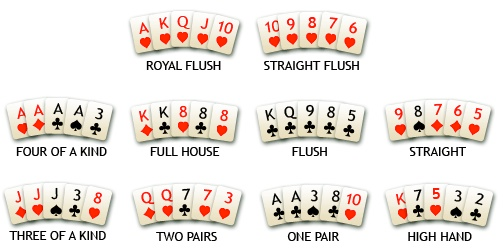This Probability of One Pair losing (percentage) equation defines the probability that another hand can beat your one pair and this probability is expressed as a percentage. The One Pair hand can be beaten by all the hands of greater value: two pair, three of a kind, straight, flush, full house, four of a kind, straight flush, and royal flush. So the probability that an opponent has a hand that can beat your hand is the sum of all the higher value hands' probabilities, plus the probability that your opponent has a One Pair hand with a higher pair, plus the probability that your opponent has a One Pair hand with a more valuable high card than you have. See the Notes Page for further explanation.

Notes
The probability that you can be beat is the sum of the probabilities of any hand that can beat your One Pair hand, and each of those probabilities is based on the ratio of the combinations of ways to be dealt those winning hands to the number of five card hands possible,(525). The total number of five card hands possible is computed as (525) (see the constant defining number of five card hands).
The probabilities that must be summed are:
The probability of being dealt two pair
The probability of being dealt three of a kind
The probability of being dealt a straight
The probability of being dealt a flush
The probability of being dealt a full house
The probability of being dealt four of a kind
The probability of being dealt a straight flush
The probability of being dealt a royal flush
The probability of being dealt a higher pair
The probability of being dealt a pair of the same card value with a greater value high card